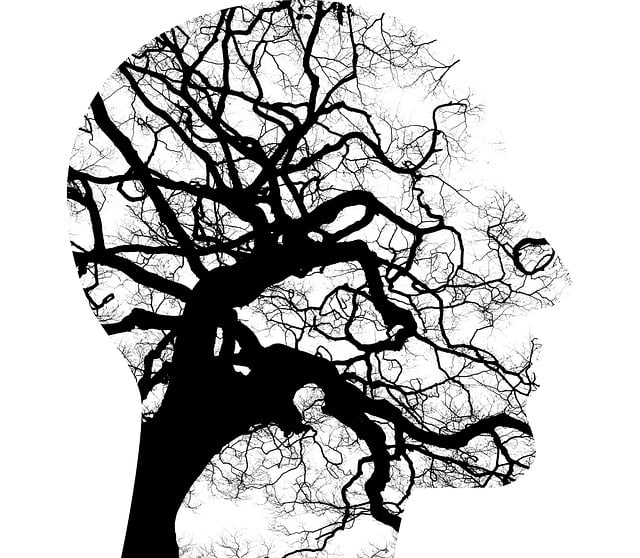In Colorado Springs, mental health stigma hinders access to care for diverse populations facing unique challenges, especially during major life transitions. This culture of outdoor adventure may encourage suppressing emotions. To combat stigma, the city must focus on education and community engagement, normalizing conversations about mental health through events, support groups, and media campaigns. Local therapy services provide safe spaces for expression, tailored coping strategies, and crisis intervention, empowering Coloradans to manage life transitions successfully while improving mental well-being, highlighting the importance of Colorado Springs Major Life Transitions Therapy.
In Colorado Springs, mental illness stigma remains a significant barrier to individuals seeking help. This article explores effective strategies for reducing stigma, focusing on understanding its profound impact on mental health. We delve into the power of communication, offering practical tips for fostering empathy and support. Additionally, we highlight the critical roles of therapy and support groups in helping individuals navigate Colorado Springs’ major life transitions, emphasizing their importance in breaking down stigma and promoting well-being.
- Understanding Stigma and its Impact on Mental Health in Colorado Springs
- Strategies for Effective Communication to Reduce Stigma
- The Role of Therapy and Support Groups in Navigating Major Life Transitions
Understanding Stigma and its Impact on Mental Health in Colorado Springs

In Colorado Springs, mental illness stigma remains a significant barrier to accessing care. The city’s diverse population experiences unique challenges that often exacerbate the effects of mental health issues. Major life transitions, such as moving to a new city or changing jobs, can trigger emotional distress, leading to undiagnosed and untreated conditions. This is particularly concerning given Colorado Springs’ reputation for outdoor activities and adventurous lifestyles, which may inadvertently promote suppression of emotional vulnerabilities.
Stigma negatively impacts those living with mental illness by fostering isolation and discouraging open conversations about emotional regulation. It prevents individuals from seeking the support they need, including therapy and self-awareness exercises. Mental illness stigma reduction efforts in Colorado Springs must address these challenges head-on. By promoting understanding and empathy through education and community engagement, residents can create an environment where everyone feels comfortable discussing their mental health and seeking professional help when needed.
Strategies for Effective Communication to Reduce Stigma

Reducing stigma surrounding mental illness requires a multifaceted approach, and effective communication plays a pivotal role in this process. One powerful strategy is to encourage open conversations about mental health issues, fostering an environment where individuals feel comfortable sharing their experiences without fear of judgment. This can be facilitated through community events, support groups, or even media campaigns that showcase diverse stories of resilience and recovery, reflecting the reality of mental illness across various demographics, including Colorado Springs Major Life Transitions Therapy services.
Empathy building strategies are essential tools in breaking down barriers. Educating people about the symptoms, treatments, and recovery journeys can help dispel myths and misconceptions. By promoting mental health awareness, we can encourage individuals to check their biases at the door and approach others with kindness and understanding. This, coupled with self-esteem improvement initiatives, can create a supportive network that empowers those affected by mental illness to seek help without feeling stigmatized.
The Role of Therapy and Support Groups in Navigating Major Life Transitions

Navigating major life transitions can be incredibly challenging, often exacerbating existing mental health concerns or triggering new ones. In Colorado Springs, therapy plays a vital role in equipping individuals with the tools they need to manage these shifts. Through talk therapy, people can explore and process their emotions, gain insight into their thoughts, and develop coping strategies tailored to their unique experiences. Therapists provide a safe, non-judgmental space where individuals feel empowered to express themselves openly, fostering resilience and promoting healthy emotional regulation.
Support groups, another powerful resource in Colorado Springs, offer a sense of community and understanding during major life transitions. These groups facilitate peer-to-peer connections, enabling members to share their stories, exchange strategies for coping with stress, and provide mutual support. By engaging in open dialogue and connecting with others who have experienced similar challenges, individuals can reduce feelings of isolation and build resilience, ultimately contributing to improved mental well-being. Crisis intervention guidance and stress management techniques are often integral components of these group settings, empowering participants to effectively navigate life’s inevitable ups and downs.
Mental illness stigma reduction is a multifaceted approach that involves understanding its profound impact on individuals, fostering empathetic communication, and leveraging therapeutic support. In Colorado Springs, addressing mental health challenges during major life transitions can significantly benefit residents. Through effective therapy and supportive groups, those navigating these changes gain tools to manage their mental well-being. By continuing to promote open dialogue and access to care, the community can create a more inclusive environment where everyone feels supported and empowered.














